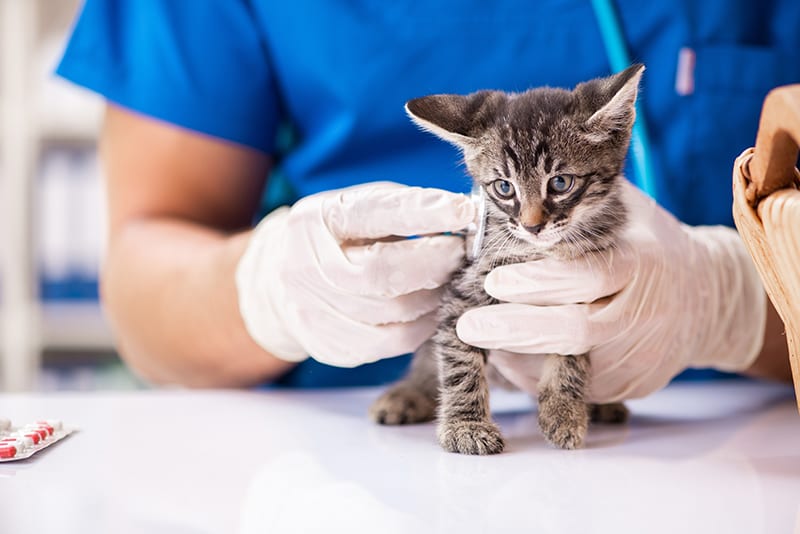Vaccination has saved the lives of many cats. It is arguably the best invention of medicine yet.
By introducing antigens of certain diseases, vaccines trigger the body to produce antibodies for the said disease.
If the kitty is exposed to the bacteria or virus, her immune system will be able to fight it.
While modern vaccines are safe and effective, they can cause some side effects.
Not all cats experience the negative consequences of vaccines. Some get by with zero issues after their annual shots.
On the other hand, others are not so lucky. They experience effects that range from:
- Mild reaction (exhibited by sneezing, loss of appetite, low-grade fever, redness and inflammation at the injection site, and low activity levels)
- Moderate reaction (itchy skin, hives, redness, and swelling)
- To severe reaction (diarrhea, vomiting, a drop in the blood pressure, breathing challenges, seizures, shock, collapse, cardiac arrest, cold extremities, and death).
Whether your kitty reacts mildly, moderately, or severely to her shots, there are a few things you can do to take care of her.
Here’s a rundown of making a cat feel better after vaccines.
1. Monitor The Cat Closely
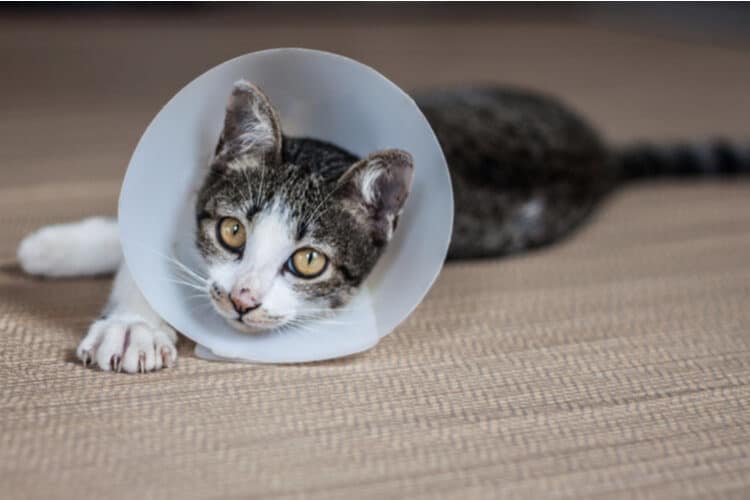
Once your kitty comes back home after vaccination, be sure to keep a close eye on her.
While mild reactions often die down by themselves over a couple of days, moderate and severe ones need medical intervention.
If the kitty only has a slight fever, disinterest in food for a while, and a low level of activity, there’s no need to panic yet.
On the other hand, if her fever goes up or she shows bodily weakness, breathing difficulties, fainting, hives, excessive itching, and all the other severe symptoms mentioned above, do not hesitate to call the vet. Some of the reactions can become fatal if not treated.
To know the progress of your furball, make a habit of checking on her every so often and over a couple of days.
Her eating should improve in a few days. Fever should not be around for too long. Vomiting and diarrhea should not go past two days. If it does, take the trip to the pet clinic.
2. Let The Cat Be
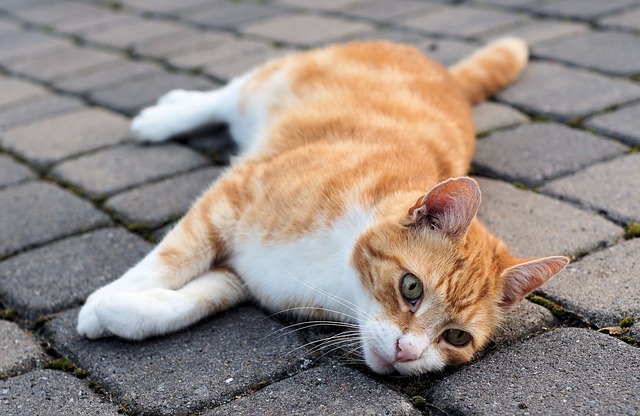
Perhaps the best thing you can do to a cat after vaccines is to leave her alone. This does not mean you should ignore her completely but rather give her space.
With all the stuff going on in her body, the last thing she wants is to play, jump around, cuddle, etc.
Some will want human company but if yours shows a desire to be alone, let her be.
Ask your kids to do the same until the period has passed.
You might have to find a system of blocking the cat off from the rest of the family until she’s in good health again.
3. Offer A Cozy Resting Place
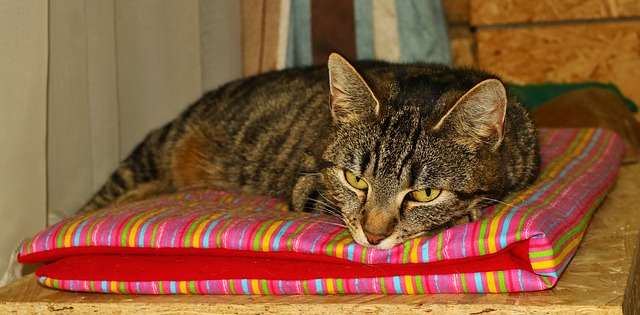
Right after vaccination, some cats will want to do nothing but sleep and rest.
Getting her a cozy bed to rest her head will do great.
If you know a thing or two about cats, you probably understand that cats love small private places where they feel safe. They fancy dry, quiet, and clean spots.
Keep noises to a minimum. You want her to be as comfortable as possible.
A cozy bed, plate of food, a scratching post, and a bowl of water are enough to give the kitty enough comfort.
While you are it, don’t be bumped out if the cat leaves the place you have prepared for another spot. She will soon come back to her normal self and assume her usual cozy nest.
4. Give Enough Food And Water
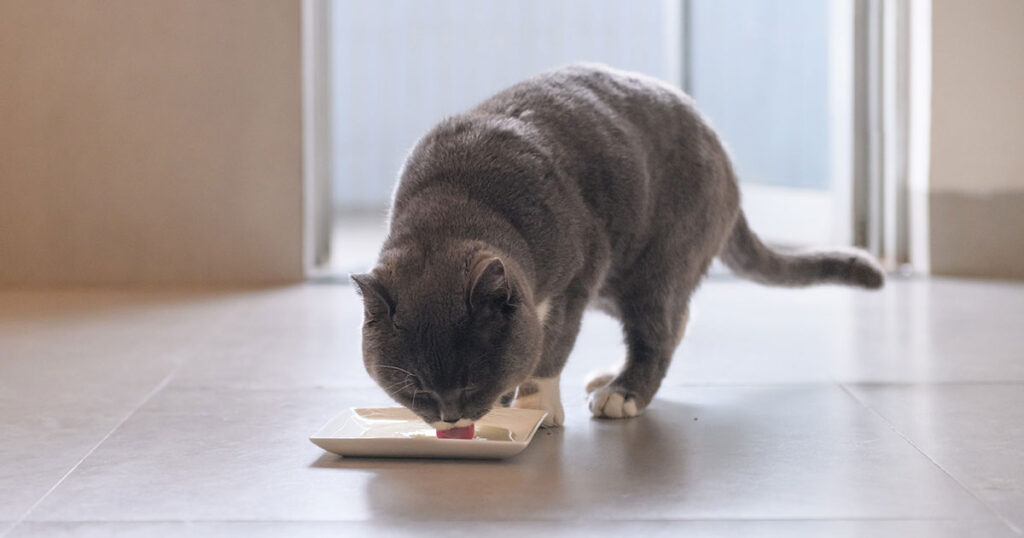
Now would be the time to spoil your cat a little with regard to food and treats. This is especially true if she has a low appetite.
Let her enjoy her favorite foods and treats to increase the likelihood of the kitty putting something in her tummy.
Cats should not go for too long without food as they can develop fatty liver syndrome. This can be fatal if not treated.
Again, if the furball shows no signs of eating, don’t panic. It won’t be too long before she assumes normalcy once more.
5. Contact the Vet
Medical intervention is necessary for cats that don’t seem to recover from mild and moderate effects and those with severe symptoms. For example, if the injection area doesn’t shrink within two weeks, you need to see a vet.
Other serious side effects range from difficulty breathing, severe coughing, swollen face, puffy eyes, persistent diarrhea and vomiting, hives, and fainting.
Some of the symptoms will present a few minutes after vaccination. Others will take hours to show.
The minute your cat exhibits any of them, an emergency trip to the vet is necessary.
Cat Vomiting After Vaccine
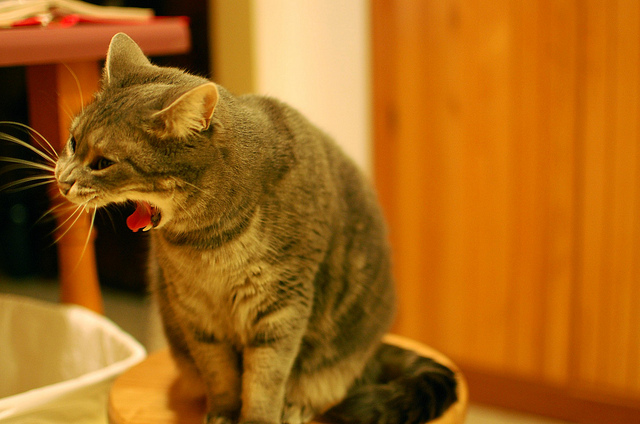
Side effects come about when vaccines trigger an over-reactive response to the cat’s immune system.
Some felines are so sensitive that certain antigens cause reactions one of which is vomiting.
A cat throws up because of an upset stomach. Diarrhea almost always accompanies vomiting.
Vomiting is classified under mild side effects of vaccines. Except for the cost and time of cleaning up, there’s very little else to be concerned about.
However, if the cat vomits repeatedly (more than three days), is weak and lethargic, or shows signs of increased thirst and decreased appetite, she definitely needs help. This simply means that the vaccines have overwhelmed her immune system.
Throwing up constantly causes all sorts of issues ranging from dehydration to electrolyte imbalances (especially sodium).
As such, your kitty will need supportive care involving subcutaneous or intravenous fluid therapy and feeding of a bland diet.
The vet will advise you on the best diet that is easily digested and how to offer it to the pet. They may also offer an anti-emetic drug to stop the vomiting.
Related Post: My Cat Eats Grass but Doesn’t throw Up: Should I worry?
Final Thoughts
Vaccination doesn’t affect some felines the tiniest bit. Unfortunately, it does have adverse effects on others.
If yours falls in the second category, she requires your help to feel better after vaccines.
Watch her progress closely and if something is off, contact your veterinarian quickly.

Hi! I am Eleanor Price. I started this website after my cat, Louie, almost died from a case of botulism (a type of food poisoning often caused by bacteria that grow on food items). Turned out that my cat’s diet was the problem. I have made it my duty to provide the best information and recommendations about everything cat lovers need to know about their felines’ health and wellbeing. My goal is to find the most informative content on anything feline-related and share it with fellow hardworking kitty lovers.

